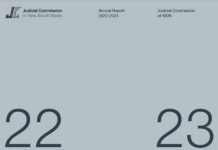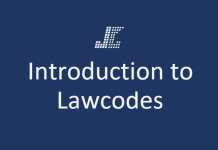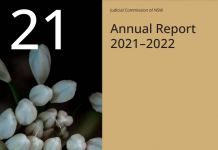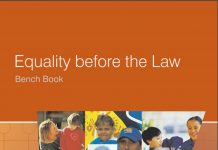[6-000] Recent sexual assault law
The following recent cases have been added:
Gray v R [2020] NSWCCA 240 concerned the competence of a 5-year-old witness, who was also the victim, diagnosed with autism spectrum disorder and a hearing impairment. The court held that to establish competency, s 13 of the Evidence Act 1995 requires an examination of whether the witness has the basic comprehension skills to understand a question and provide an intelligible answer. It is not an examination of the question of whether a witness’s evidence is credible or reliable.
In Bussey v R [2020] NSWCCA 280, the applicant appealed his sentence for aggravated sexual assault on grounds including the sentencing judge erred by not having sufficient regard or giving any weight to the extent and nature of the prior sexual experience between the applicant and victim. The court found the objective seriousness of sexual intercourse without consent cannot be reduced because of factors such as a prior sexual history between an offender and his victim without making unjustified and impermissible assumptions about the effect upon the victim.
BG v R [2020] NSWCCA 295, where it was held that the judge erred in the manner in which he addressed the issue of the applicant’s prior good character. Ryan v The Queen (2000) 206 CLR 267 at [23], which sets out the steps to be taken when determining the use to be made in the sentencing process of an offender’s character, was applied.
Tatur v R [2020] NSWCCA 255 concerned the inappropriateness of an exchange between the sentencing judge and counsel regarding an appropriate sentence. The fundamental proposition that it is for the prosecution alone to determine the charge to be preferred; for the accused alone to determine the plea to enter; and for the judge alone to determine the sentence to be imposed was discussed: see Barbaro v The Queen (2014) 253 CLR 58.
Small v R [2020] NSWCCA 216, where the appellant was convicted and sentenced for various State and Commonwealth cybersex offences with a 14-year-old victim. The appellant appealed on the ground the judge erred by failing to have regard to the utilitarian benefit of the guilty pleas for the Commonwealth offences, which was successful and a 25% discount was provided for the Commonwealth offences.
Decision Restricted [2020] NSWCCA 247, where it was held that the primary judge erred by refusing to admit evidence that the applicant had no prior convictions. The absence of prior convictions has long been understood as an aspect of prior “good character” and evidence of good character almost always helps an accused person’s defence by demonstrating it is unlikely the accused committed the offence or by supporting their credibility. The primary judge also erred in directing that the alleged lies could be taken into account as reflecting a consciousness of guilt.
FB v R [2020] NSWCCA 137, where the appellant appealed his convictions of physical and indecent assault against his children on grounds including that there was a miscarriage of justice because the judge failed to give the jury an anti-tendency direction. It was found that in the circumstances of this case, the judge was not required to given an anti-tendency direction.
GBF v The Queen [2020] HCA 40, where the trial judge directed the jury with respect to the presumption of innocence and the onus and standard of proof, explaining that the appellant’s silence did not constitute an admission and could not be used to fill gaps in the prosecution’s evidence. However, after reminding the jury of the complainant’s evidence, the judge directed them to: “bear in mind … [the complainant] gave evidence and there is no evidence, no sworn evidence, by the defendant to the contrary of her account. That may make it easier”. The High Court found such a process of reasoning is false because it proceeds upon a view that the accused may be expected to give evidence.
[7-500] Non-legal articles
The non-legal articles section of the handbook has been extensively revised, reordered and updated.
The new articles are organised under the following topics: Impact and sequelae of child sexual abuse; Dynamics of child sexual abuse; Challenges facing child witnesses; Investigation and interviewing children in child sex abuse cases; Institutional child sexual abuse; and Recording evidence and evidentiary issues in child sexual abuse cases.










